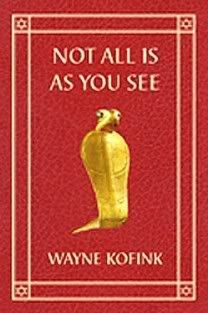HARRY POTTER REVISITED

A few weeks back I opened a hornet's nest on another site by asking if anyone found it curious that there are two Biblical quotes in Harry Potter and the Deathly Hallows. Since enough time has passed for people to read the book, I'll give the answers as to where and what the quotations are: The epitath on Kendra Dumbledore's grave, "Where your treasure is, there your heart will be also" (Matthew 6:21, HPDH, p. 325). And on James and Lilly Potter's grave: "The last enemy that shall be destroyed is death" (1 Corinthians 15:26, HPDH p. 328).
To my mind, the inclusion of the Biblical quotes was a subtle refutation to accusations that the Harry Potter Books are anti-Christian. A number of self-identified Christians (and some non-Christians) had noticed that the seventh book in the series had more religious overtones than the other books had. Some people became very upset that any religious interpretations should be made of the books. One person told me to "get a life" because I knew enough scripture to be able to recognize it when I saw it. Jimmy Crickets! They are as bad as the people who accuse J. K. Rowling of being a Wiccan or a Satanist. Somebody else thought I was "Idiotic" because I suggested a Christian (which Rowling professes to be) would be inclined to have her beliefs influence what she writes.
As I indicated earlier, (This Christian and Harry Potter) there really is no theory of the supernatural in the Harry Potter books. Magic is a technology that muggles can't master. There is no religion per se in the series, although a good case can be made that Harry does reflect many traditional Christian virtues. There is a ritualistic functionary in the books, the funny little man who performs Dumbledore's funeral and Bill and Fleur's wedding, and we can interpret him as something like a priest or minister, although that is not explicit and it would be strange to introduce a religious figure.
Nevertheless, there are these two Biblical quotations as epitaph. Someone remarked to me that it is common for non-Christians to use a Biblical quotation as an epitaph, but I don't think this is true. No one with in the story recognizes the inscriptions as Bible verses (but see what I say about Hermione below), but that isn't strange since there are no references to a religious worldview of any kind in to the books. No, the fact that these are Biblical quotations is the author sending a message to the reader that the character in the story doesn't perceive. This is an accepted literary device. I think it is a subtle wink at the Christian readers to say, see, I'm not a heathen at all.
When Harry and Hermione discover the Potter's tombstone with the epitaph, "The enemy to be destroyed is death," Harry worries that it might be a Death Eater idea. After all, the most important concern of the Dark Lord is to avoid Death. But clever Hermione (often the surrogate for Rowling) explains, "It means . . . you know . . . living beyond death. Living after death." That is a fundamental belief in Christianity.
Of course the theme though all seven books is that Harry is protected by his mother's love, expressed by her sacrificing her life. That theme is echoed in Harry's willingness to sacrifice his life. And the place where Harry makes the decision to go back and face the Dark Lord the final time is King's Cross. How more obvious does the symbolism need to be?
Rowling is not the anti-Christian occultist the fundamentalists often make her out to be. Her use of religious themes is much more subtle than C. S. Lewis, maybe too subtle for some to recognize. What she believes is in the themes of the book: good against evil, the danger of power, the value of virtue, the destructiveness of prejudice, the victory of love over hate, the importance of sacrifice. Why wouldn't a person want their children to learn these things? Are they anything that what Lewis subsumed in the Chronicles of Narnia as the "deep magic."
Stop fussing about the books. Given most of the garbage our children are exposed to, these are a treasure.
May the Lord God bless you on your way and greet you on your arrival.
Wayne






